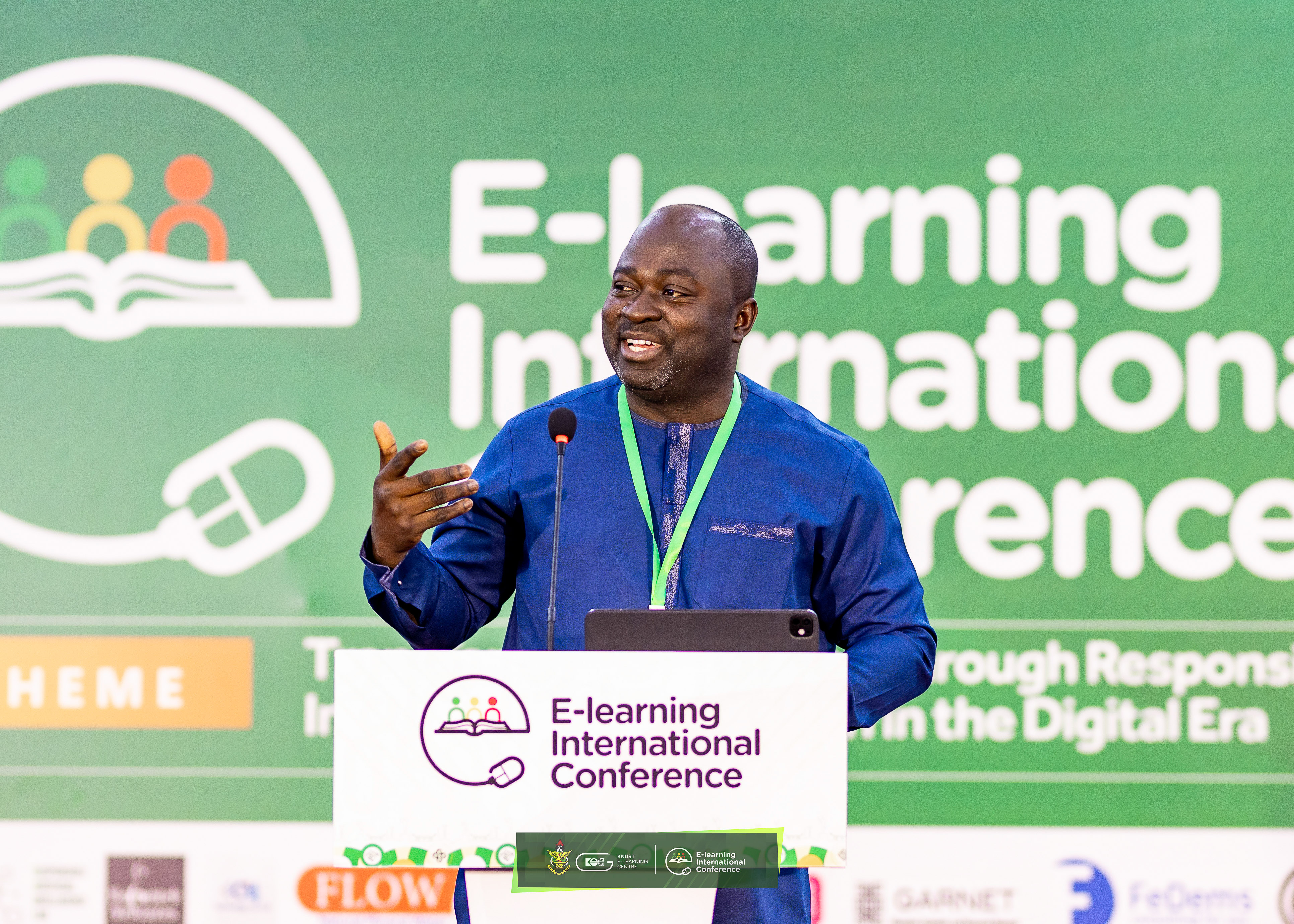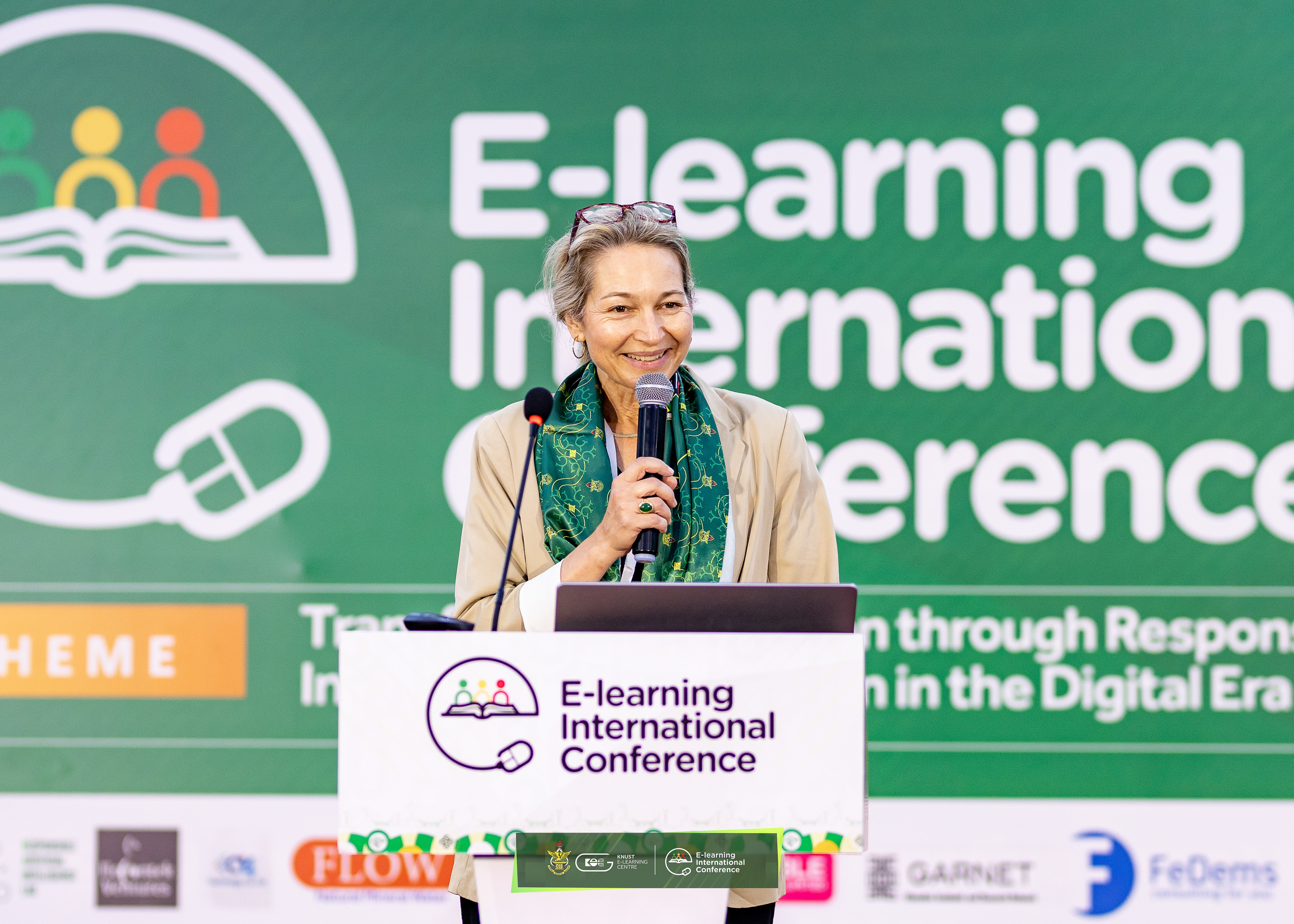KNUST Conference Day 2 Highlights AI, Automation and Virtual Labs for Science Education
The KNUST E-Learning Centre has launched a new academic journal focused on research in e-learning.
The second day of the KNUST E-Learning International Conference focused on how artificial intelligence and automation are shaping the future of engineering and science education.
Ing. Felix Atsrim, Chief Executive Officer of Fedems Limited, was one of the keynote speakers. He addressed the topic: “AI, Automation, and the Future of Engineering Education.”
“AI is not magic. It is not original. It’s artificial. That means it has a human base. It is copied, improved or limited,” Atsrim told the gathering. “As engineers, we must be part of building it, not just using it. And that process must start from the classroom.”

He said universities need to rethink how they train students for a future where traditional tools are being replaced.
“In 2004, if you didn’t have a hammer or spirit level, you were not seen as a real engineer,” he said. “Now, a simple laser or software can do the work. So we must teach students to solve problems, not just use tools.”
He explained that AI and automation can help engineers predict problems before they happen. “Our job is to solve problems, and the future engineer must learn to think ahead, with the help of AI.”
Dr. Margaret Korosec from the University of Leeds delivered the second special guest presentation.
Her focus was on “Virtual Labs and AI in Expanding Access to Scientific Discovery.”
She raised concerns about limited access to science laboratories in many schools.

“Only ten percent of secondary school students in Ghana have access to dedicated science labs,” she said. “That is more than a statistic. It is a barrier to dreams.”
Dr. Korosec said virtual labs, supported by AI, can help bridge that gap.
“What if students could conduct experiments from any location, using just a mobile phone or laptop?” she asked.
She said virtual labs shift science education from teacher-centred instruction to student-led learning. “It means students can learn by doing, even if they are not in a physical lab. This supports inclusive and accessible education,” she said.
She also referenced two papers presented at the conference, one on using AI in virtual labs, and another on how virtual labs improve interest in integrated science among technical school students.
“These tools allow students to run experiments, repeat them, and learn without risk of harm,” she added. “There is no broken glass or chemical spills—just pure learning.” She noted that virtual labs are also being used in other countries.
“From India to the U.S., these tools are already helping students in schools with no labs,” she said.
Dr. Korosec stressed that virtual labs are not meant to replace physical labs but to support and expand access.
“They are safe, interactive, and repeatable. When paired with AI, they also guide students, offering real-time feedback and acting like a co-teacher.”
Published: 6th August, 2025 Source: KNUST E-Learning Centre
